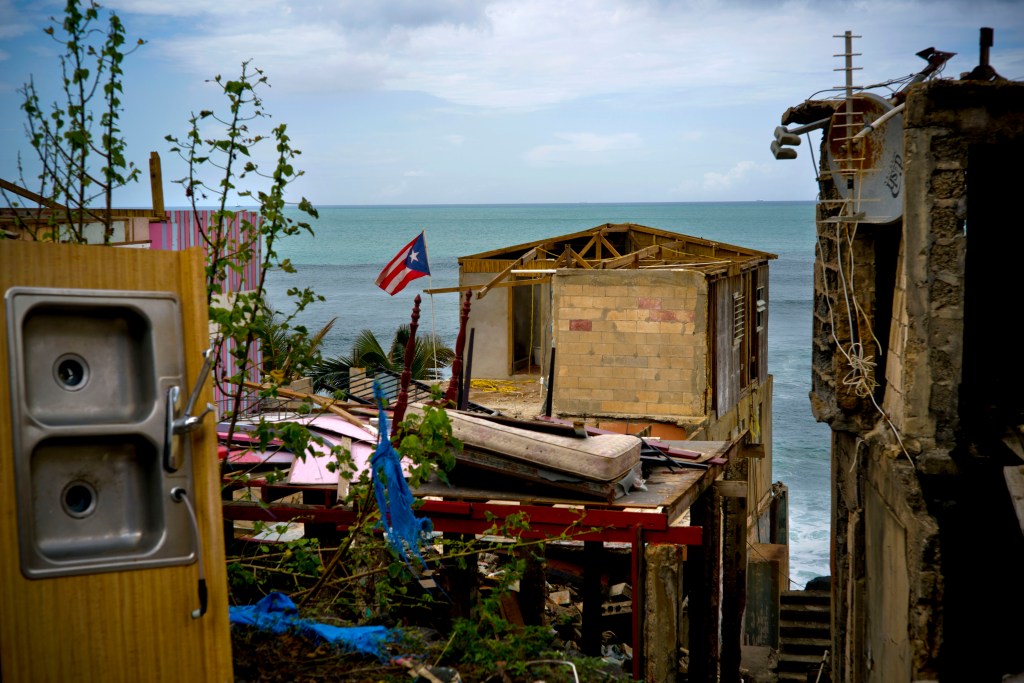President Donald Trump says the federal government’s response to the devastation of Hurricane Maria in Puerto Rico was “an incredible, unsung success.”
It was not.
Start with fact that Puerto Rico’s government now estimates that nearly 3,000 people died as a result of the hurricane. Or remember the long weeks Puerto Ricans lived without drinking water, and the long months without power. Or consider the thousands who fled for the mainland, their businesses and homes covered in blue tarps or destroyed behind them. Nearly a year later, too many blue tarps remain.
But no need to rely on anecdotes of Puerto Ricans who waited crucial days for water and food. In fact, Trump’s own federal government — the Federal Emergency Management Agency and Government Accountability Office — were critical of its performance. For instance, FEMA’s after-action report found FEMA entered the 2017 hurricane season “with a force strength less than its target, resulting in staffing shortages across the incidents.” The report recommended that FEMA increase “readiness stocks” outside the continental United States, and work on getting supplies and personnel on the ground quickly even in remote locations — like generators, which were scandalously scarce in Puerto Rico.
None of those sober realities takes away from the difficulties faced by disaster responders. Maria devastated the entire island. Puerto Rico’s infrastructure was in no shape to withstand the storm’s might, and the island’s own government made missteps.
But the federal response can hardly be called “success.” Trump must stop moving the goal posts and instead learn from past failures because new storms approach.
Editorial by Newsday
©2018 Newsday
Visit Newsday at www.newsday.com
Distributed by Tribune Content Agency, LLC.
Send questions/comments to the editors.



Success. Please wait for the page to reload. If the page does not reload within 5 seconds, please refresh the page.
Enter your email and password to access comments.
Hi, to comment on stories you must . This profile is in addition to your subscription and website login.
Already have a commenting profile? .
Invalid username/password.
Please check your email to confirm and complete your registration.
Only subscribers are eligible to post comments. Please subscribe or login first for digital access. Here’s why.
Use the form below to reset your password. When you've submitted your account email, we will send an email with a reset code.